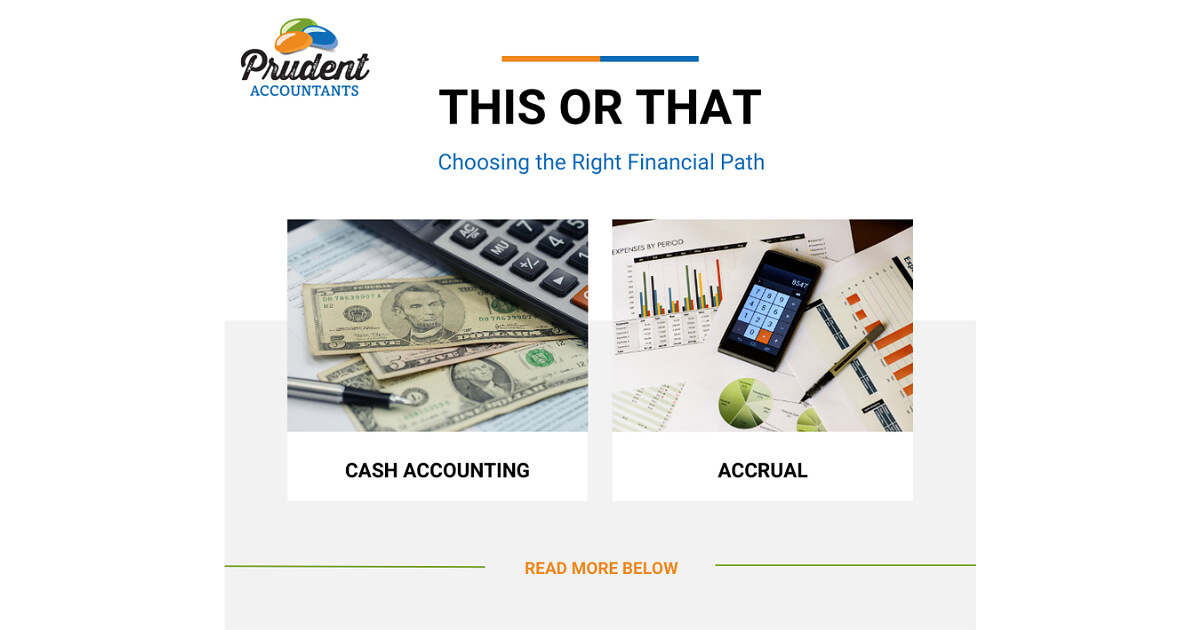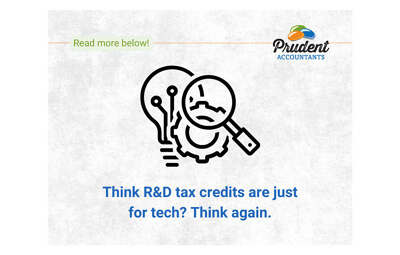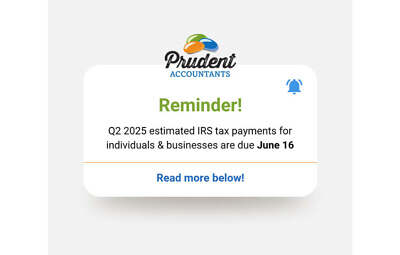Choosing the Right Accounting Method: Accrual vs. Cash Accounting

Is your business using the best accounting method for its financial health? Many small business owners and entrepreneurs overlook the significance of their chosen accounting method, yet it profoundly impacts financial reporting, tax obligations, and decision-making. In this blog post, we’ll explore the two primary accounting methods—accrual and cash accounting. By understanding their differences, advantages, and disadvantages, you’ll be better equipped to select the most suitable method for your business.
Understanding Cash Accounting
Definition
Cash accounting is a straightforward method where transactions are recorded only when cash is exchanged. In other words, revenues are recognized when they are received, and expenses are recognized when they are paid.
How It Works
Imagine you run a small bakery. Under cash accounting, you record sales when customers pay for their bread and pastries, regardless of when the orders were placed. Similarly, you record expenses when you pay your suppliers, regardless of when you received the flour and sugar.
Advantages
- Simplicity and Ease of Use: Cash accounting is relatively simple to implement, making it ideal for small businesses and sole proprietors with limited accounting knowledge.
- Better Cash Flow Visibility: This method provides a clear picture of the actual cash on hand, helping you manage your cash flow more effectively. You can easily see how much cash you have available at any given time.
- Less Administrative Burden: With fewer transactions to track and simpler bookkeeping, cash accounting requires less administrative effort and fewer resources.
Disadvantages
- Incomplete Financial Picture: Cash accounting can provide a misleading view of your business’s financial health. For instance, if you’ve made sales on credit, your revenue might look lower than it actually is.
- Challenges with Long-Term Planning: Since cash accounting focuses on immediate cash flow, it can be difficult to make long-term financial plans or projections.
- Potential Credit Issues: Without recognizing receivables and payables, it may be harder to track and manage credit extended to customers or obtained from suppliers.
Understanding Accrual Accounting
Definition
Accrual accounting records revenues and expenses when they are earned or incurred, regardless of when cash is exchanged. This method matches income with the expenses incurred to generate that income, providing a more accurate financial picture.
How It Works
Using the bakery example, under accrual accounting, you would record a sale when the bread is delivered to the customer, even if they pay you next month. Similarly, you would record the expense of flour when you receive it, even if you pay the supplier later.
Advantages
- More Accurate Financial Picture: Accrual accounting provides a complete view of your financial situation by recognizing revenues and expenses when they occur, not just when cash changes hands.
- Better Matching of Income and Expenses: This method aligns revenues with the expenses incurred to generate them, leading to more accurate profit and loss statements.
- Compliance with GAAP: Generally Accepted Accounting Principles (GAAP) require the use of accrual accounting for publicly traded companies and businesses that must adhere to rigorous financial reporting standards.
Disadvantages
- Complexity and Time Consumption: Accrual accounting is more complex and requires more detailed record-keeping and bookkeeping, which can be time-consuming and require specialized knowledge.
- Challenges with Cash Flow Management: Since revenue is recorded before cash is received and expenses before they are paid, it can be more challenging to monitor and manage cash flow accurately.
Key Differences Between Accrual and Cash Accounting
Timing of Transactions
The primary difference between cash and accrual accounting is the timing of when transactions are recorded. Cash accounting records transactions when cash changes hands, while accrual accounting records them when they are earned or incurred.
Impact on Financial Statements
In cash accounting, the income statement and balance sheet only reflect transactions that have been completed with actual cash flow. Accrual accounting, however, includes accounts receivable and accounts payable, providing a more comprehensive view of your financial health.
Tax Implications
Cash accounting might defer some tax liabilities by delaying the recognition of income until cash is received. Accrual accounting, on the other hand, could lead to earlier tax obligations since income is recognized when earned, not necessarily when received.
Choosing the Right Method for Your Business
Business Size and Complexity
Smaller businesses and sole proprietors often benefit from the simplicity of cash accounting, especially when transactions are straightforward and easily manageable. Larger businesses, or those with more complex transactions, typically require the detailed approach of accrual accounting.
Regulatory Requirements
Certain businesses are required by law to use accrual accounting. For instance, if your business exceeds a certain size or if you are a publicly traded company, you must follow GAAP, which mandates accrual accounting.
Financial Goals
If your business aims for long-term growth and requires detailed financial analysis for decision-making, accrual accounting is likely the better choice. It provides the necessary insights for strategic planning and performance evaluation.
Industry Practices
Industry norms and practices can also influence your choice. Some industries have standard accounting practices that most businesses follow, making it easier to compare financial performance with peers.
Transitioning Between Methods
When to Switch
You might consider switching accounting methods if your business grows significantly, if regulatory requirements change, or if you need more detailed financial information for decision-making.
How to Switch
- Assess the Current Situation: Understand why you need to switch and what benefits the new method will bring.
- Consult a Professional: Seek advice from an accountant to ensure the transition is smooth and compliant with tax regulations.
- Adjust Financial Records: Update your financial records to reflect the new accounting method. This may involve restating prior financial statements.
- Implement New Processes: Train your accounting staff and implement new bookkeeping processes to align with the new method.
- Communicate the Change: Inform stakeholders, including investors, employees, and regulatory bodies, about the change in accounting methods.
Consulting a Professional
Transitioning between accounting methods can be complex. Consulting with a professional accountant ensures that the switch is handled correctly and compliantly, minimizing disruptions to your business.
Your Next Steps in Accounting
Selecting the right accounting method is crucial for your business’s financial health and strategic planning. Cash accounting offers simplicity and better cash flow visibility, making it ideal for smaller businesses. Accrual accounting, while more complex, provides a comprehensive and accurate financial picture, essential for larger or growing businesses.
Evaluate your business size, complexity, regulatory requirements, financial goals, and industry practices when choosing the best method. If considering a switch, seek professional advice to ensure a smooth transition.
At Prudent Accountants, we specialize in helping businesses navigate their accounting choices. Our expert team offers customized financial reporting, bookkeeping, and CFO advisory services to ensure your business uses the optimal accounting method. Contact us today to learn how we can support your financial management needs.








